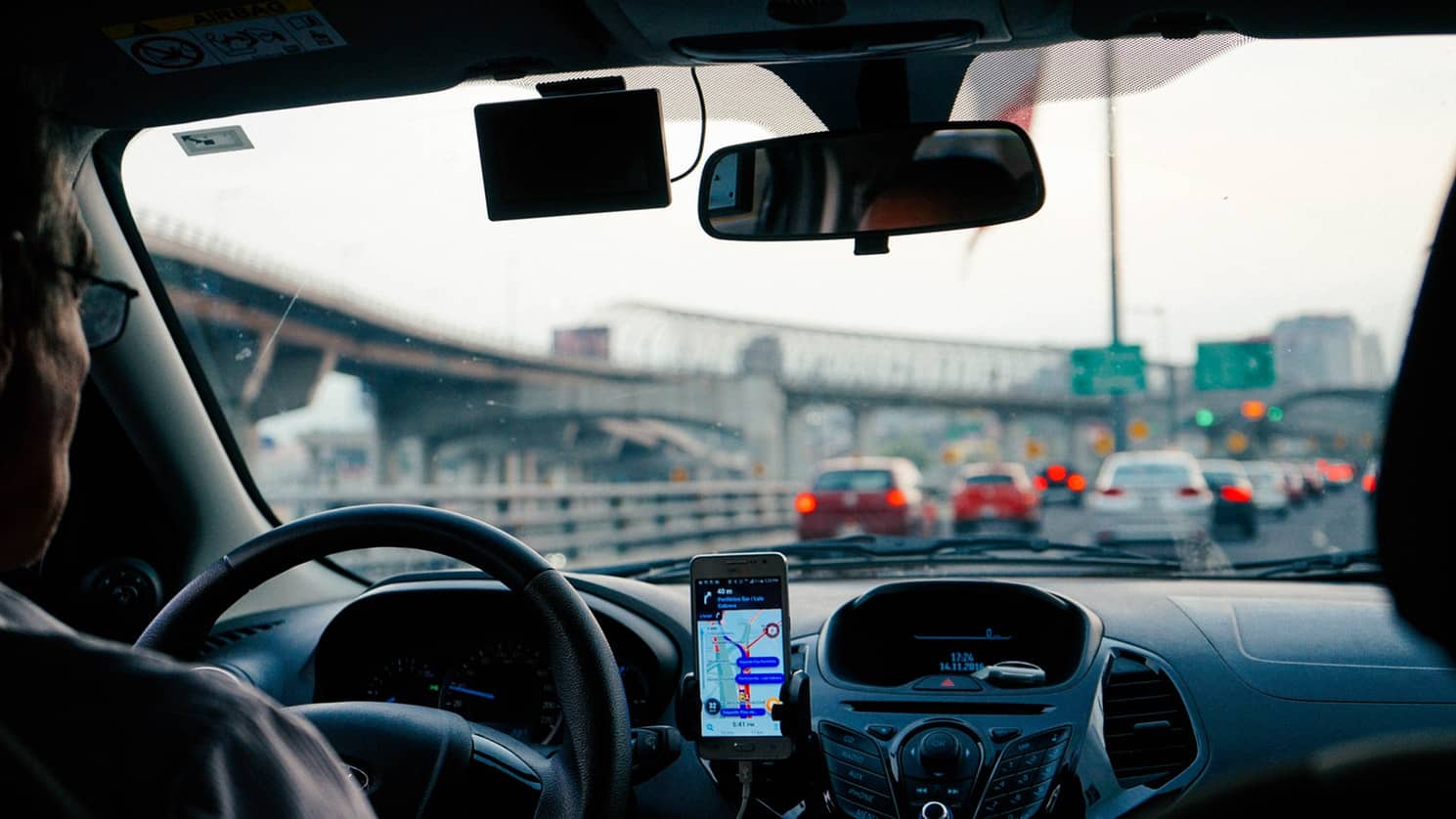In a matter of just a few years, ridesharing has completely changed the way we get around. Gone are the days when we’d hunt for the number of cab companies and order rides ahead of time. Instead, we can hire a driver with a few taps of our smartphones. Affordable, easy to use and a great way to keep drunk drivers off the road, ridesharing seems to be the perfect solution for a number of common problems. There is a potential downside to services like Uber and Lyft, though: when you’re involved in an accident as a ridesharing passenger, the legal fallout can be confusing at best and downright frustrating at worst. While it may be impossible to avoid ridesharing altogether, your best option is to get informed about your rights and prepare for the worst.
Ridesharing Insurance
Unless you’re an Uber or Lyft driver, you’ve probably never given much thought to the insurance coverage you’re eligible for when climbing into the back of a ridesharing service’s vehicle. Both companies require drivers to hold insurance in order to offer rides to customers. While the app is on and a ride is in progress, a driver and their passengers are covered by the company’s supplemental insurance. Should you be involved in an accident as a passenger, Uber and Lyft’s liability policies will cover your damages, regardless of who is at fault.
This changes, however, if the driver is involved in a crash while en route to pick you up. While you may be able to wash your hands of the situation as a passenger who had nothing to do with the incident, the Uber or Lyft driver may find themselves shouldering the financial burden of the accident themselves. Because the supplemental insurance does not kick in until the passenger is in the vehicle, many ridesharing drivers find themselves handling their accident claim through their own personal auto insurer.
Liability
As a passenger, you’re at the mercy of the driver whose car you’re in. Regardless of whether you’re catching a ride with a friend or you’ve hired a taxi or rideshare service, you are relatively powerless to the driving decisions that are made behind the wheel. Should your driver be involved in an accident that they were responsible for, they can be held liable for your damages. Regardless of whether you’re catching a ride with a friend or hiring a ridesharing driver to pick you up, they are the ones legally responsible for your damages. Passengers cannot hold Uber or Lyft responsible for their damages and instead must seek compensation from their driver. Both companies have a $1,000,000 liability policy to help cover costs, but should you face an uphill battle getting the uber accident settlement you deserve, you’ll be holding the individual driver responsible, not the ridesharing company.
If You’re in an Accident
If you find yourself in an accident while riding in an Uber or Lyft, call 911 and take photos of the wreck. Talk with witnesses on the scene and get their contact information. You’ll also want to get the full name of your driver if you do not already have it. Take screenshots of your Uber ride and the receipt on your phone. If you are injured or incurred any kind of medical bills, you’ll want to hire a personal injury attorney as soon as possible. The earlier you partner with a lawyer, the better your odds at getting the justice you deserve.
An attorney can help you preserve the evidence of the crash and prove that your injuries were the direct result of the incident. Without legal help, companies like Uber and Lyft may give you the cold shoulder and refuse to cooperate. While we’d like to think that such businesses have their customers’ best interests in mind, they are ultimately out to turn a profit for their shareholders. If they can get away with not paying out your claim, they will.
What All Ridesharing Drivers Should Know
Uber and Lyft may require you to have personal auto insurance coverage while driving for them, but chances are good that your insurance company will not provide coverage while you are driving for a ridesharing company. Many private car insurers have clauses in their policies that disclaim accident coverage when the driver was working for pay. If you get into an accident while driving for Uber or Lyft, don’t be surprised if your car insurance company sees this as an exclusion to your coverage.
If you’re in your vehicle and the Uber or Lyft app is not currently logged in, your accident can be claimed with your personal insurance company. If you’re logged into the app but have not yet accepted a ride and find yourself in a collision, the ridesharing company’s insurance will cover damages done to others who were injured or had their vehicle damaged in the crash. Your own injuries and vehicle damages will not be covered in such a situation. After you have accepted a ride, Lyft and Uber’s liability insurance kicks in. Should a crash occur, this coverage will help pay for the medical costs and other damages associated with the wreck, but your own injuries and damages will not be covered. The exception to this rule? If you have the contingent collision/comprehensive coverage offered by the ridesharing company. This coverage will help pay for damages done to your own vehicle.
Before Your Next Ride
The next time you order a Lyft or Uber for your night out, consider the insurance coverage you’ll receive as a passenger. While the rules surrounding ridesharing insurance may seem complicated, drivers need to be far more careful than the average passenger. Arming yourself with knowledge is a great place to start, so if you’re concerned about what might happen if you’re in an accident while ridesharing, it pays to do your homework.
You can learn more about car insurance, liability and understand what your accident might be worth by checking out Car Accident Settlement Calculator.


